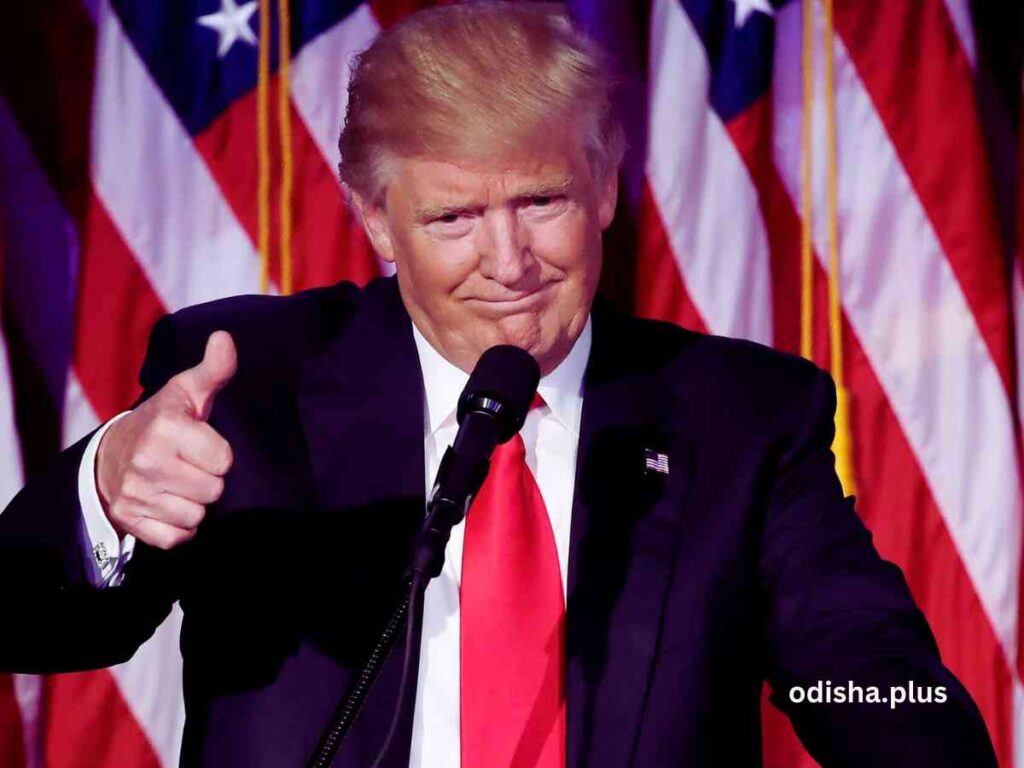The directive was a strategic pivot that aimed to realign U.S. health policy & international cooperation
Bhaskar Parichha

Donald Trump’s decision to sever ties with the World Health Organization (WHO) was anticipated, much like his executive order to withdraw the United States from the Paris Climate Agreement. Throughout his initial term in office, Trump had taken significant steps to exit the leading global health organization, citing its alleged failure to hold China accountable for the COVID-19 pandemic as a primary justification.
This narrative was a recurring theme in his administration’s rhetoric, and shortly after the commencement of his second term, he reiterated these claims, emphasizing a continued distrust of the organization. In a move that underscored his administration’s stance, the President instructed U.S. agencies to ‘pause the transfer of any U.S. government funds or resources to WHO.’
This directive was not merely a financial decision; it was a strategic pivot that aimed to realign U.S. health policy and international cooperation. Additionally, he called for the identification of ‘credible partners to assume necessary activities previously undertaken by WHO,’ signaling a shift towards a more fragmented approach to global health governance. This executive order reflects a narrow perspective on the UN agency’s critical role in managing health emergencies worldwide, as it overlooks the extensive network and resources that the WHO provides.
Cross-border Outbreaks
The WHO is uniquely positioned as the leading global health authority, with no other organization possessing the same level of reach and legitimacy in addressing infectious diseases and establishing protocols for managing cross-border outbreaks. Its comprehensive framework for international health regulations is essential for coordinating responses to health crises that transcend national borders. The expertise and resources that the WHO brings to the table are vital not only in times of pandemics but also in the ongoing battle against endemic diseases and health threats.
Moreover, the WHO’s role extends beyond infectious diseases; it is also instrumental in mitigating the prevalence of serious non-communicable diseases, including cancer, diabetes, and cardiovascular conditions. These health issues represent a significant burden on global health systems and require coordinated international efforts to address effectively. By undermining the WHO, the Trump administration risked destabilizing the collaborative frameworks that are essential for tackling these pressing health challenges.
Trump’s decision to sever ties with the WHO reflects a broader trend of skepticism towards multilateral institutions and a preference for unilateral action. However, this approach may ultimately hinder the United States’ ability to effectively respond to global health threats and could have long-lasting implications for international health cooperation. The WHO’s expertise, legitimacy, and comprehensive approach to health governance are irreplaceable assets in the fight against both infectious and non-communicable diseases, and any attempt to diminish its role could jeopardize global health.
Founding Member
The US is one of the WHO’s founding members. It has historically been the largest financial contributor to the UN agency. It would, however, be reductive to see the engagement between the world’s largest economy and its premier health agency through a purely economic lens. The US is a party to two WHO treaties: The agency’s constitution and the International Health Regulations, the governing framework for epidemic preparedness and response.
At the height of the Cold War, the WHO became the main portal for US-Soviet collaboration in healthcare which went on to play a seminal role in the eradication of smallpox. The organization stewards a vast network of public health agencies, laboratories, and international scientists that constantly track novel outbreaks. US institutes like the Centers for Disease Control and Prevention (CDC) depend on this network for information. So does the US pharma industry.
More than 20 WHO collaborating centers at the CDC and National Institutes of Health focus on US priorities, including cancer prevention and global health security. Trump’s executive order directs the US secretary of state to ‘cease negotiations’ on the WHO Pandemic Agreement, an international treaty to prepare the world for future outbreaks. This is as great a threat to the global health security architecture as the withdrawal of US financial support.
Strengthening WHO
The World Health Organization is at a critical juncture, necessitating comprehensive reform to enhance its effectiveness and responsiveness in the face of global health challenges. The COVID-19 pandemic has starkly illuminated the organization’s governance and funding shortcomings, revealing vulnerabilities that must be addressed to ensure a more robust global health infrastructure. Rather than distancing from the WHO, nations must engage actively with the agency to foster improvements and strengthen its capabilities.
The pandemic has underscored the undeniable reality that infectious diseases do not recognize geographical boundaries; they can spread rapidly and unexpectedly, affecting every corner of the globe. This phenomenon has illustrated how interconnected our world has become, where a virus can leap from one country to another in a matter of days, transcending borders and impacting diverse populations regardless of their location. The implications of such widespread transmission are profound, as they can lead to significant public health challenges, economic disruptions, and social upheaval.
In light of this situation, the importance of a robust and effective World Health Organization (WHO) has never been more apparent. The WHO plays a crucial role in coordinating global responses to health crises, ensuring that countries are not left to navigate these challenges in isolation. By providing expert guidance and evidence-based recommendations, the organization helps nations implement effective strategies to combat outbreaks, manage healthcare resources, and protect public health.
Moreover, the WHO facilitates the exchange of vital information and resources among countries, fostering collaboration and solidarity in the face of shared threats. This includes the dissemination of research findings, best practices, and innovative solutions that can be adapted to local contexts. The organization also plays a pivotal role in mobilizing funding and support for countries that may lack the necessary infrastructure or resources to respond effectively to health emergencies.
Future Pandemics
In addition to its immediate response capabilities, the WHO is instrumental in strengthening global health systems and promoting preparedness for future pandemics. This involves advocating for investments in healthcare infrastructure, enhancing surveillance systems, and building the capacity of healthcare workers worldwide. By addressing the root causes of health disparities and inequities, the WHO aims to create a more resilient global health landscape that can withstand the challenges posed by infectious diseases.
Ultimately, the lessons learned from the pandemic highlight the need for a united global approach to health security. The WHO’s leadership and coordination are essential in fostering international collaboration, ensuring that all countries, regardless of their economic status, have access to the tools and support necessary to protect their populations. As we move forward, we must recognize the interconnectedness of our world and commit to strengthening global health governance to safeguard against future health crises.
(The author is a senior journalist and columnist. Views expressed are personal.)
#DonaldTrump #WHO #WorldHealthOrganization #GlobalHealth #PandemicPreparedness #InternationalCooperation #GlobalHealthSecurity #TrumpAdministration #USForeignPolicy



























Bhaskar Parichha’s article is a complete one having exposed the global health services,it’s inadequacies,its future as avmultilateral organisation.tne of the finest piece of journalism, which explores the healthcare system at great length.In addition to Trump’s annoyance with China,as the later had hidden the Covid 19, which led to become a pandemic, Trump after assuming the office as 47 th predident state that China having 1.40 billion people pays only 33 million dollar, whereas America having 33crore people pays 150 million, which is discriminatory. For which he withdrew from the global institution.
Extraordinary article